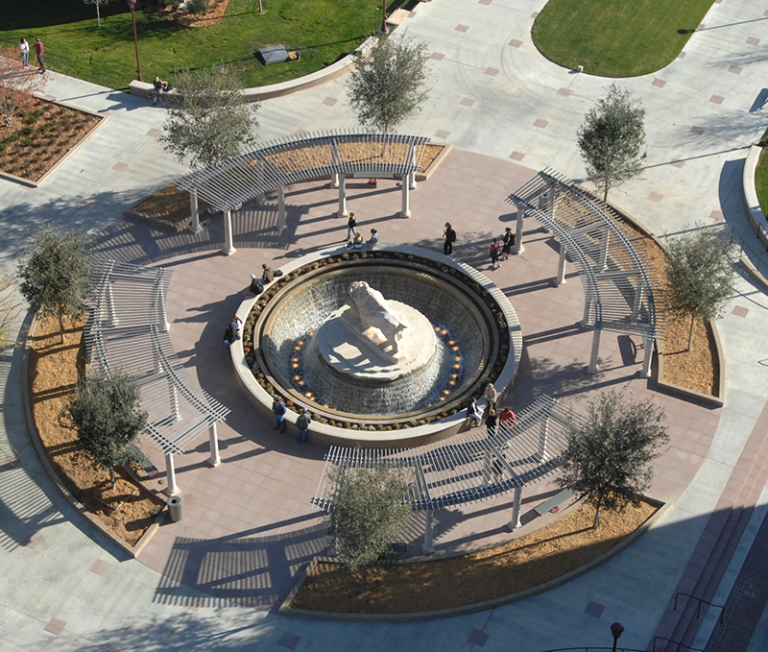In political organizations, the first allegiance for all employees is to the elected official for whom they work. For better or worse the elected official’s allegiance may be to party, to country, to ideology, or unfortunately in many cases, to self.
In corporate organizations, a person’s first allegiance may be to the corporation, or to supervisor. In “Miracle on 34th Street” Macy’s won when they made their first allegiance to the customer, even if that meant sending their customers to other places where they could get a “better deal”.
In an excellent research university, the faculty members, who are the university, have a set of allegiances that are challenging to understand.
Faculty members are cottage industries.
They rise or fall on the quality of their work. Even though they are supported by the state, or tuition, or large endowments in some combination, their effort is calibrated through intellectual output.
Nothing else.
In excellent universities, excellent faculty members bring prestige to the university: They teach with passion, they carry out scholarly and creative work that attracts the attention of those distant from the campus, they win awards, their students gain scholarships and other recognition that elevates both the faculty member, and in turn, the institution. This is a positive cycle that creates pressure through rising demand for excellence.
The importance of the cycle is that it begins with the faculty member. In primary or secondary schools this is not necessarily the case. Faculty members are not teachers in the sense that many use this word. Likewise, in a college or community college, the cottage industry concept is only true to a limited extent.
In research universities faculty cottage industry is the gut of the organization.
This creates special allegiances. Faculty members must have a strong relationship to the discipline they belong to. It is disciplinary excellence, recognized by peers, that allows the faculty member and university to gain prestige. While the nuances of this might be argued, it means that the allegiance of the faculty member to the university itself may be subjugated to their ties to the discipline.
Even more confounding is that the very best faculty of any university must have a strong allegiance to their own success. Remember they are cottage industries, not employees. Unfortunately in some cases – thankfully few – this translates into a form of arrogance that is hard to stomach. In most cases there is a balance attained between the passion of the faculty member and his or her service to the university, because there is a symbiotic relationship at play. Good faculty work at good universities and each values the other.
A number of things can muddy the relationship of the faculty member to his or her work. A blind allegiance to the university, especially if it is also alma mater, can create a false sense of purpose. Likewise an allegiance to a labor union may make primary concerns of the intellectual work secondary. The work of a faculty member cannot become a job.
Faculty members don’t have jobs; they are CEO’s of their enterprise. Hopefully they can excel, but they must be able to fail.
For a faculty member, allegiance to anything other than the development and sharing of insight and knowledge is a form of utility that undermines the value of the university for the greater social good. Friedrich Schiller, the German poet and philosopher understood this clearly: “Utility is the great idol of the age, to which all powers must do service and all talents swear allegiance.”
The cottage industry relationship, challenging as it is, must be part of our university.





These articles are too good and too important not to be circulated via a newspaper. I must admit I don’t subscribe to a paper, but rather try to read what I want online. This cherry picking approach doesn’t qualify me as a good audience, (though my reasons for not getting a paper include the fact that they’ve disallowed writings such as this) but I would wager the subscribers to our local paper for instance are more engaged and influential than the average Joe. These are the same people who are motivated to follow-up, either in protest or defense, they also are more affluent than me.
Dr. Wendler, I know you don’t want to come across as a rebel rouser or a scorned “has been” around here, but people like myself can’t get enough of what you are doing. Thank you and keep doing it, you are speaking for people like me who have the same view of the university to administration as we do our country to government, we love the one and fear the other.
I love three topics, two of which are Baseball and politics. This university has stirred more intellectual, political rage in me than I can shake a stick at. So much so that sometimes our suffering of a few broken eggs as a university is something I don’t necessarily loathe. I don’t root for failure long term speaking, but we’ve been shooting a flawed jump shot for quite some time now, to play on a sports analogy.
I am brainstorming different mediums. You’ve given this thought, what are your alternatives putting your modest inhibitions aside?